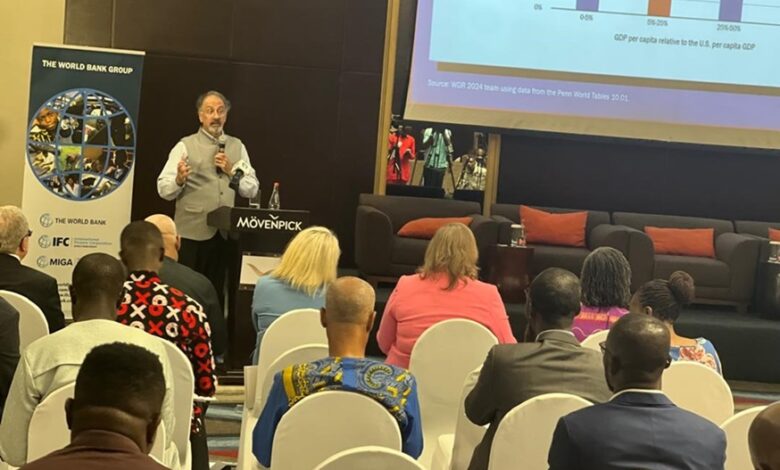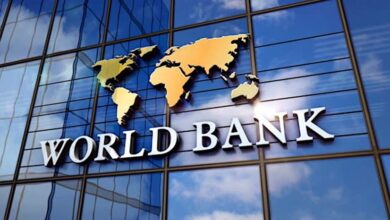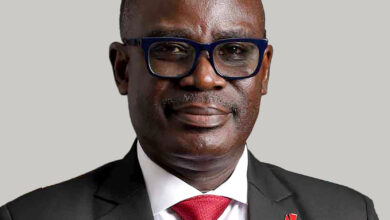Ghana must adopt strategic plan for sustained growth- World Bank Dev Economist

WORLD Bank Chief Economist and Senior Vice-President for Development Economics, Indermit Gill, has stressed the urgent need for Ghana to adopt a more strategic, long-term approach to foster sustained economic growth.
Speaking to journalists at the launch of the World Development Report 2024, Gill outlined a series of policy recommendations designed to help Ghana move beyond its lower-middle-income status and avoid the middle-income trap — a situation where countries experience stagnating economic growth after reaching middle-income levels.
Gill, pointed out that while Ghana has made significant strides as a lower-middle-income nation for over a decade, its current growth trajectory remains insufficient to propel it toward high-income status.
Despite consistently positive growth, he noted that Ghana’s performance has not been comparable to the rapid development seen in countries like South Korea, China, and India, which have sustained high growth rates for several decades.
The Growth Challenge: Learning from East Asia’s Success
Drawing comparisons to East Asian economies, Gill emphasized that countries like South Korea maintained growth rates above 5% for over 50 years, transforming from low-income to high-income status.
China achieved similarly remarkable growth for 30 years, and even India, which until recently lagged behind Ghana in per capita income, has now surpassed it and is aiming for even higher growth.
According to Gill, Ghana — with its abundant natural resources, educated population, and potential for economic diversification — has every opportunity to emulate these success stories, but must first overcome several key challenges.
“There’s no reason why Ghana shouldn’t be growing even faster, at rates of 5%, 7%, or even 10%,” he stated, adding that what’s missing is the right combination of public and private investment and a comprehensive policy framework that encourages sustainable development.
Key Recommendations
One of the major issues Ghana faces, Gill noted, is the need to strike a balance between public and private investment while ensuring that public debt remains at sustainable levels.
He stressed that maintaining a low public debt-to-GDP ratio is crucial for long-term growth, particularly in an environment where global borrowing costs can fluctuate significantly.
“When the cost of borrowing is low, it’s easy to sustain a higher debt-to-GDP ratio, but as we’ve seen over the last few years, the cost can quickly rise,” he said, highlighting that Ghana’s debt-to-GDP ratio should ideally not exceed 50%.
According to Gill, this level is manageable and growth-friendly, enabling the government to fund essential infrastructure projects without crowding out private investment.
Gill also warned against excessive borrowing from international markets, advising that any loans should be directed towards high-return projects that genuinely contribute to economic growth
“Ghana needs to be careful about borrowing too much from outside. The key is to focus on projects that yield high returns, such as infrastructure that boosts productivity,” he explained.
While the government has a vital role to play in setting the stage for economic growth, Gill was quick to point out that Ghana’s path to high-income status would ultimately be driven by the private sector.
He emphasized that private investment, not government spending, is what will push the country toward sustained economic expansion.
“Ultimately, it is Ghana’s private investors that will lead the country into high income. The government can create a good environment for investment, but it’s the private sector that will take the lead,” he said.
Gill encouraged the government to adopt policies that make it easier for private enterprises to thrive, focusing on creating a stable macroeconomic environment and implementing reforms that attract both domestic and foreign investments.

Leveraging Ghana’s Diaspora and Global Integration
Another critical recommendation from Gill was for Ghana to increase its integration into the global economy, particularly through technology and ideas from abroad. He noted that one of Ghana’s unique advantages is its sizable and influential diaspora community, which could play a pivotal role in connecting the country with global markets and innovations.
“Ghana actually has a very good diaspora. It can use this to bring in outside technologies, ideas, and investments. The key is to open the economy more aggressively to these global influences,” Gill said.
He explained that developing countries that have successfully transitioned to higher income levels have done so by embracing external ideas and adapting them to their local contexts.
Gill further argued that Ghana could benefit significantly by tapping into its diaspora’s expertise and financial resources, enabling the country to adopt modern technologies and practices that would accelerate growth in key sectors like agriculture, manufacturing, and services.
The Global and Domestic Context
Despite his optimism about Ghana’s potential, Gill acknowledged that the country faces several external challenges that could hamper its growth prospects. He pointed out that the global economic environment is becoming increasingly difficult for developing nations, with rising borrowing costs, geopolitical tensions, and slower global growth rates.
However, Gill maintained that while external conditions may be tough, Ghana could overcome these obstacles by focusing on improving its domestic environment. “The global environment is not getting any easier for a country like Ghana, which means that the domestic environment has to become even better, and faster,” he stressed.
He urged Ghana to prioritize reforms that would create a more favorable climate for investment, encourage innovation, and reduce bureaucratic red tape. By doing so, he argued, the country could position itself as a regional economic leader, attracting both domestic and international investors eager to capitalize on its untapped potential.
Ghana’s Path Forward: A Roadmap for Success
Gill’s remarks come at a critical time for Ghana as the nation grapples with economic headwinds, rising public debt, and the need to transition from a reliance on traditional sectors to a more diversified, knowledge-based economy.
The World Bank’s Chief Economist made it clear that while Ghana has made significant progress, the next decade will be pivotal in determining whether the country can break free from the middle-income trap and achieve long-term prosperity.
His recommendations provide a comprehensive roadmap for policymakers, focusing on maintaining fiscal discipline, enhancing private sector participation, integrating with global markets, and leveraging Ghana’s diaspora to foster innovation.
As the country looks ahead, Gill’s message is one of cautious optimism: Ghana is on the right path, but much more needs to be done to ensure sustainable growth that benefits all its citizens.
“Ghana is doing well, but it can do even better,” he concluded.




